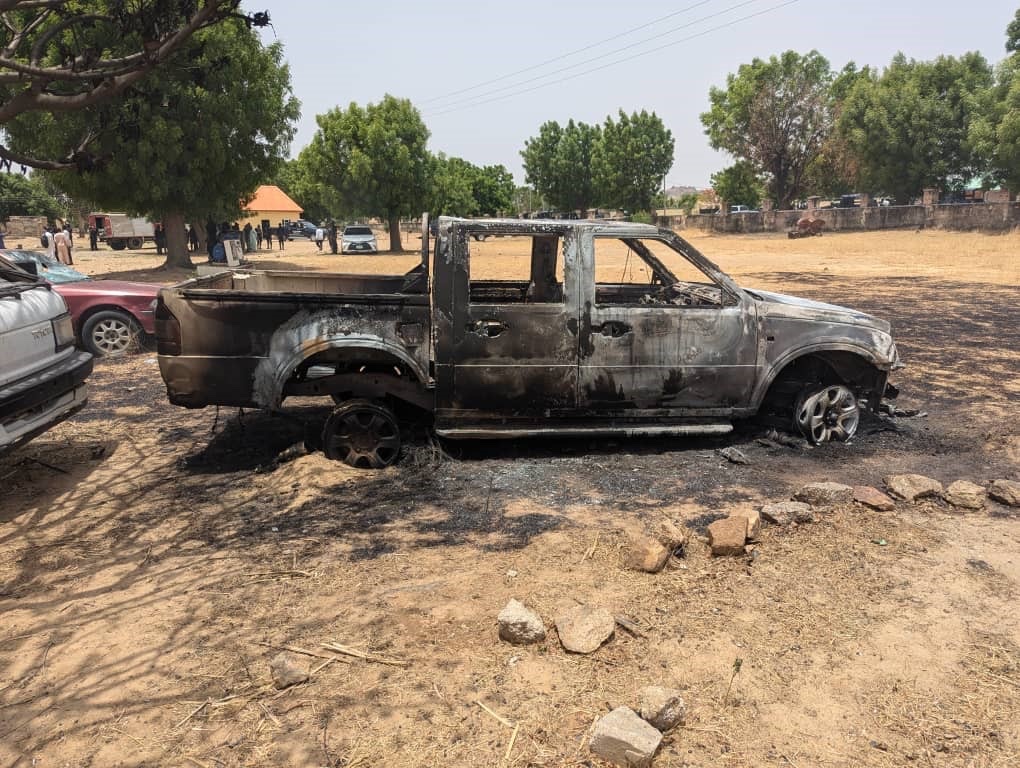a violent clash between angry youths and law enforcement has left a community in mourning and a police station in ruins. On May 25, 2025, Chief Superintendent of Police Baba Ali Mohammed, the Divisional Police Officer (DPO) of Rano Police Division, was killed, and a detainee, Abdullahi Musa, lost his life under controversial circumstances, sparking a deadly confrontation that has sent ripples through the region. This tragic incident, which unfolded over the course of a single night, has raised questions about police conduct, community trust, and the volatile intersection of justice and public outrage.
The Incident: A Fatal Arrest
The chain of events began around 8:15 p.m. on May 25, when Abdullahi Musa, a local motorcycle mechanic, was arrested by officers of the Rano Police Division. According to police reports, Musa was apprehended for reckless and dangerous riding, allegedly under the influence of intoxicants. The arrest, initially routine, took a grim turn when Musa began showing signs of physical distress while in custody. By the early hours of May 26, he was rushed to Rano General Hospital for urgent medical attention. Tragically, at approximately 6:00 a.m., Musa was pronounced dead.
The circumstances surrounding Musa’s death remain murky. Official police statements assert that he died while receiving treatment at the hospital, with no clear cause of death disclosed. However, local sources and eyewitness accounts circulating in the community allege a far more troubling scenario: that Musa was subjected to physical assault by the DPO, Chief Superintendent Baba Ali Mohammed, during his detention, which may have contributed to his death. These unverified claims, whether rooted in truth or fueled by speculation, ignited a firestorm of anger among the youths of Rano, setting the stage for the violence that followed.
The Attack: A Community’s Fury Unleashed
News of Musa’s death spread rapidly and by the morning of May 26, a mob of enraged youths descended on the Rano Police Division. What began as a protest quickly escalated into a full-scale attack. The crowd, driven by grief and allegations of police brutality, stormed the station with ferocity, looting property, setting parts of the building ablaze, and vandalizing vehicles parked on the premises. Two police vehicles were reduced to charred wrecks, while ten others sustained significant damage.
Amid the chaos, Chief Superintendent Baba Ali Mohammed, the DPO, became a target of the mob’s wrath. Reports indicate that he was seriously injured during the assault on the station. Officers on the scene managed to rush him to Aminu Kano Teaching Hospital, but despite medical efforts, he succumbed to his injuries. His death marked a devastating escalation in an already tragic sequence of events, leaving the community and the police force grappling with the loss of two lives in less than 24 hours.
The Aftermath: Arrests and Investigations
In response to the attack, the Kano State Police Command, under the leadership of Commissioner of Police Ibrahim Bakori, swiftly mobilized to restore order. By the end of the day, 27 suspects had been arrested in connection with the assault on the Rano Police Division. The police have vowed to conduct a thorough investigation into both the death of Abdullahi Musa and the subsequent attack that claimed the life of the DPO. Commissioner Bakori has publicly appealed for calm, urging residents to refrain from further violence and to cooperate with law enforcement as they seek to uncover the truth.
The investigation is expected to focus on several key questions: What caused Abdullahi Musa’s death? Was there any misconduct on the part of the police during his detention? And what drove the youths to such extreme measures? While the police maintain that Musa’s death occurred during medical treatment, the allegations of physical assault have cast a shadow over the official narrative, fueling distrust among the community.
A Community in Crisis
The events in Rano have exposed deep-seated tensions between the police and the public, particularly in communities where allegations of excessive force and custodial misconduct are not uncommon. The death of Abdullahi Musa, a young man whose life was cut short under disputed circumstances, has become a rallying point for those who feel marginalized or mistreated by law enforcement. At the same time, the killing of Chief Superintendent Baba Ali Mohammed, a seasoned officer tasked with maintaining order, underscores the dangers faced by police in volatile situations.
For the people of Rano, the dual tragedy has left scars that may take years to heal. The destruction of the police station, a symbol of authority in the area, has disrupted local law enforcement operations, while the loss of lives has deepened the sense of grief and division. Community leaders and residents alike are now calling for dialogue, transparency, and accountability to prevent such incidents from recurring.
A Call for Calm and Justice
In his statement following the incident, Commissioner Bakori emphasized the police’s commitment to justice and public safety. “We are deeply saddened by the loss of our officer and the detainee,” he said. “We assure the public that no stone will be left unturned in our pursuit of the truth. We urge everyone to remain calm and allow the legal process to take its course.”
For now, Rano remains a community on edge, grappling with the aftermath of a night of violence that claimed two lives and left a police station in ruins. As investigations continue, the hope is that truth and accountability will pave the way for healing and reconciliation in a town shaken by tragedy.
Join our Whatsapp channel to stay updated always!


